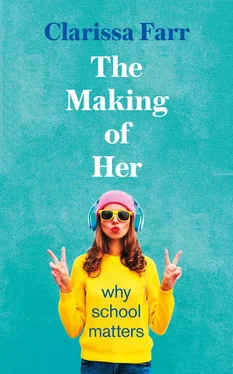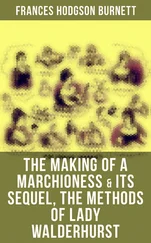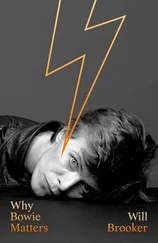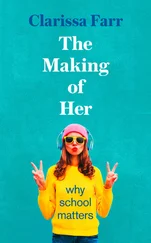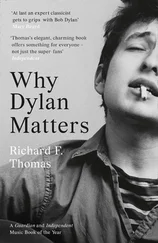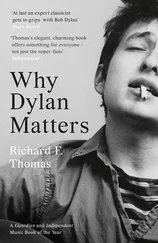THE MAKING OF HER
Why School Matters
Clarissa Farr

William Collins
An imprint of HarperCollins Publishers
1 London Bridge Street
London SE1 9GF
www.williamcollinsbooks.com
This eBook first published in Great Britain by William Collins in 2019
Copyright © Clarissa Farr 2019
Cover photograph © Shutterstock
Clarissa Farr asserts the moral right to be identified as the author of this work
Image herefrom Christopher Alexander, Murray Silverstein, Sara Ishikawa, A Pattern Language Towns, Buildings, Construction (Oxford University Press, 1977)
A catalogue record for this book is available from the British Library
All rights reserved under International and Pan-American Copyright Conventions. By payment of the required fees, you have been granted the non-exclusive, non-transferable right to access and read the text of this e-book on-screen. No part of this text may be reproduced, transmitted, down-loaded, decompiled, reverse engineered, or stored in or introduced into any information storage and retrieval system, in any form or by any means, whether electronic or mechanical, now known or hereinafter invented, without the express written permission of HarperCollins
Source ISBN: 9780008271305
Ebook Edition © August 2019 ISBN: 9780008271312
Version: 2019-08-07
Remembering my parents, Alan and Wendy Farr
Contents
Cover
Title Page
Copyright
Dedication
Foreword
Chapter 1 S eptember : Back to school – ‘the make-believe of a beginning’
Chapter 2 October : A question of gender – still vindicating the rights of women?
Chapter 3 November : Headship – opening up the path on which the next generation will travel
Chapter 4 December : Living in community – the love of tradition and the role of co-curricular life
Chapter 5 January : Competition and cooperation – what kind of education do we want for our children?
Chapter 6 February : Be a teacher – be the one you are
Chapter 7 March : Promoting well-being and mental health – a twenty-first-century challenge
Chapter 8 April : When things go wrong – running with risk, facing up to failure, living with loss
Chapter 9 May : Creating the triangle of trust – working with today’s parents
Chapter 10 June : Valediction and looking to the future
Afterword
Notes
Acknowledgements
About the Author
About the Publisher
Coming back from teaching to my office, I find an intricate, pop-up paper sculpture made from the insides of a book perching like a curious bird on my desk, with a note from the artist. Meanwhile, a shock netball match result against a team we were certain to beat reverberates around the building. A tutor reports that a head of peacock-blue hair has materialised in the Lower V (surely it was brown yesterday?) and we discuss whether this requires a response. On results day, a girl is face down on the marble concourse after it emerges she has a near-disastrous GCSE profile of nine A*s and one A. Four of our youngest girls come to see me to ask if I can be filmed saying the first word that comes into my head when they say ‘Paulina’ (‘independent’). And just after Christmas, my urgent attention is required by parents whose daughter has been offered a place at the wrong Oxbridge college. What, Ms Farr, are you going to do about it?
Such are the fragments that make up the life of a headmistress – but how to capture them? The headlong nature of schools means I could do little more than fire off the occasional letter to The Times from my iPhone while heading towards the Great Hall of St Paul’s to take assembly, scribbled notes flying. And even if I could set them down, would anyone be interested?
School. The word conjures a world at once so familiar as to be hardly worthy of comment (much less a book) but at the same time often attended with emotion: for some, affection and nostalgia, for a few, sadly, hostility and anger. There are those for whom school was a mixed or even traumatic experience, those for whom it was mainly rather dull and, equally, there are some for whom nothing has ever been quite as much fun since.
This book is for anyone who has been to school. I invite you to go back in time to that unique and personal world, to walk the academic year with me and to reconnect in memory with the teachers, places and habits that were yours. This isn’t meant as therapy, you understand: how would I presume to offer that? I have been lucky: happy for the most part at school in Somerset (I’ve expunged the memory of diving into the freezing outdoor pool in April) and apart from the equally icy coldness of the billowing, black-clad nuns at my convent primary school, my school days were far from traumatic. But whatever our recollection of school, to revisit that impressionable time is to understand better who we have become and why. And the more we can turn our education to good account in the present, the more we can help our children, whose adult lives will be so different from ours, to do the same.
School came to mean something different when I became a teacher – not through a high-minded desire to serve the next generation but because, while putting the finishing touches to my MA dissertation, I was, somewhat pretentiously, obsessed by the novels of Henry James. ‘Live! … Live all you can; it’s a mistake not to,’ he writes in The Ambassadors – and I wanted to do so. This meant finding an excuse to go on reading James while being paid and, if possible, persuading my students of the unrivalled brilliance of these works. In practice as a teacher I rarely touched on his labyrinthine novels – most of my pupils would have been escaping through the doors (or windows) before I reached the end of the first, attenuated, periodic, excruciatingly Jamesian sentence. Instead, I was surprised to find I liked the company of my students for its own sake: their quick-wittedness, their irreverence, their refusal to be impressed.
I began my working life in the ordered world of Farnborough Sixth-Form College. The students were barely younger than I was and teaching Chaucer’s Miller’s Tale as a twenty-two-year-old young woman to a class peppered with eighteen-year-old boys provided challenges I hadn’t been trained for (no, they might not kiss me – not even once – at the end of term). I was able to learn some of the craft of teaching with A-level students who had chosen their subjects and were eager to learn. This was not a given in all classrooms, as I found out later when I moved from this ambrosial world to the spin-dryer that was Filton High School in Bristol, a city comprehensive. There it was period eight, last of the day, with a bottom-set class of adolescents, that everyone dreaded, but I learned there everything I know about classroom control and how to discipline a rowdy room through timing and silence.
Three years in the Far East followed as I finally shed my West Country tethers, arriving at Sha Tin College in glittering, clattering Hong Kong. When the prospect of becoming a gin-and-tonic-swilling expat palled, I returned to the gloomier skies of England’s heart and Leicester Grammar School, where at the time, Richard III was still safely buried under a city centre car park. There I began my life in senior management, with the monitoring of skirt lengths, the removal of nail varnish and timetabling in my wide-ranging portfolio. I moved into girls’ education (much easier for an ambitious woman wanting to get to the top than staying with co-education, at that time) as deputy head at my mother’s old school, Queenswood in Hertfordshire, in 1992. When the headmistress, Audrey Butler, retired four years later, I was chosen to succeed her. My father, rarely a man to waste words on optimistic sentiment, beamed with pride: his girl was obviously as bossy as he was – what joy! Ten years followed, during which I also married and had two children, before the chance of running the schools’ equivalent of Manchester United came up. Elizabeth Diggory was to retire from St Paul’s. The stars were aligned, the timing was perfect and I came to lead my first and only London day school in September 2006.
Читать дальше
